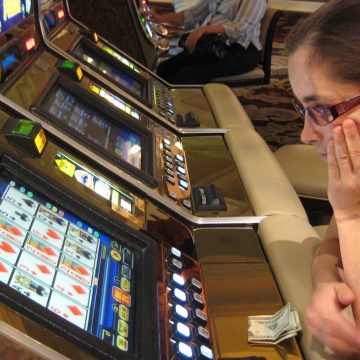
The Pennsylvania State Legislature is at an impasse over its online gambling bill, though both legislative houses have passed similar bills. The two sides cannot agree on the brick-and-mortar gambling laws.
It is estimated online poker alone would make $400 million a year. Meanwhile, the state continues with a $250 million-a-month shortfall. While Pennsylvania’s lawmakers cannot make up the entire $3 billion budget deficit through gambling revenues, they will save the taxpayers hundreds of millions of dollars over the months and years.
Senate Bill: 54% Tax Rate on Online Poker
The Pennsylvania Senate passed a bill which would tax online gambling sites at a 54% rate. The Senate bill included limited expansion of land-based gambling, mainly on lottery games and airport gaming machines.
House Bill: 16% Tax Rate on Online Poker
Soon after, the Pennsylvania House of Representatives passed their own gambling bill. In the House iGaming bill, the tax rate on online poker would be 16%, in line with the taxes on brick-and-mortar casino gambling. That represents a much lower tax rate, which makes the bill a more profound revenue booster for Pennsylvania casinos and racinos which open their own Internet gaming portals.
Video Lottery Terminals Are Controversial
The major difference in the two bills, though, is the House’s including of video lottery terminals (VLTs) in bars and taverns throughout the state. By one estimate, the bill would approve between 35,000 to 40,000 new gaming machines in the state. Currently, Pennsylvania casinos and racinos have about 27,000 total electronic gaming machines (EGMs).
The House bill was enough to convince Sheldon Adelson of Las Vegas Sands Corp, which owns Bethlehem Sands Resort & Casino, to found his own political action committee. Pennsylvanians For Responsible Government is designed to block the VLT legislation, which Adelson believes would hurt the slots revenue at Bethlethem Sands. Currently, Pennsylvanians For Responsible Gaming has spent $1 million on attack ads, suggesting that the bill would turn Pennsylvania into “The Land of 12,000 Casinos”.
Video lottery terminals are Class II gaming machines, instead of the Las Vegas-style Class III gaming machines used at land-based casinos across the state. Though VLTs use a bingo game mechanic to produce results, they otherwise look and feel like any other slot machine (see: the picture above). No doubt, the adding VLTs to taverns would hurt slots row at Bethlehem Sands, though experts differ on how much harm it would do to the bottom line.
80% of Online Gamblers Do Not Visit Land Casinos
For once, the online gambling provisions in the proposed Pennsylvania gambling laws are not the controversial parts. Online gambling’s impact on the land-based casino economy was debated in Pennsylvania legislative hearings in March 2017. At the time, the verdict was online gambling would have little impact.
At least that’s what David Satz, Caesars Entertainment’s Senior Vice President Government Relations, said at those hearings. Mr. Satz said that 80% of the online poker players who play on Caesars’ sites in the New Jersey gaming market are not customers of their Atlantic City casino — and never were customers.
A Win-Win for Pennsylvania Casinos and Racinos
The idea is that online poker and live poker have minimal overlap. The Atlantic City poker players do not simply stay home to gamble in the privacy of their home. Instead, the land-based card players continue to go to Caesars, Harrah’s, or Bally’s Atlantic City — or Borgata. Meanwhile, a whole other order of gamblers enjoy those casino’s online poker sites on their computer screens from the comfort of their own homes.
All of that might be immaterial, because the VLT legislation could derail a kind of omnibus gambling bill. The Pennsylvania Senate and House are going to have to reconcile their two bills. The difference in taxation rates is a simple fix: find a number in-between that both sides can live with and lawmakers in both houses can claim victory. The video lottery terminal question is the big question, because there are going to be winners and losers and no solution helps everybody.















